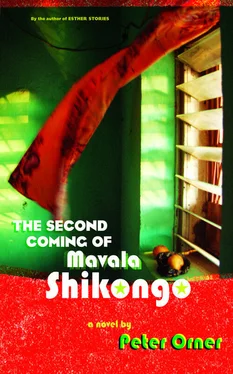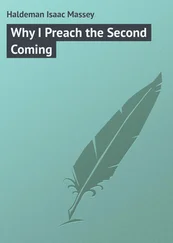He sniffs. He takes off his glasses, pinches his nose, puts his glasses back on, gazes east, west.
“You see, Carter was the only one of your presidents who had a nimble enough mind to see we weren’t Communists in the truest sense. There were some real ones. Joe Slovo, perhaps. Chris Hani. But for the most part, it was always a question of playing Commie because at that time it didn’t quite matter.”
“Please —”
“Because the fight was the only thing. And that takes money. Independence would come and it would all be solved. With Jimmy Carter, through the black man at the United Nations, Andrew Young — there was hope. But hope. One pays dear for it. Next came your movie star. The war went on another decade. Then, when the fighting was finally over, Sam Nujoma said, ‘Commie? Who me?’ Because by then the money was coming from somewhere else. See? Easy?”
“But —”
“Of course there were people who believed in it! Your Mavala being one — and it was, wasn’t it, a beautiful thing? Houses, jobs. Food enough for all? How does one argue with this? Where’s the dear man now?”
“Who?”
“Andrew Young!”
“I don’t know.”
“Faded away did he?”
“How should I know?”
“A man like Andrew Young and you don’t know?”
I stop. He walks on ahead. An old man banging away and banging away and banging away. When I leave this place, this old man will still be banging away. I turn around and walk faster, head for the road. He starts hollering.
“You think there’s honor in inconsolable? Over a girl in a skirt? You think that’s devastation?”
I’m on the road. The gravel stretches across the veld like a long tongue. I shout back, “I didn’t say. I only —”
He stands on a koppie, a lonely tree of a man against the sky. “And Andrew Young? You think it’s a joke. How many people would be alive today if anybody listened to him? Families intact? Glorious futures? And that blameless girl would have stayed home in her village with her mother.”
Siesta and my eyes feel like they’ve been torn open. I knock on the wall. I knock on it again, again. “Wake the fuck up.”
“May I help you?”
“Fok jou mama se poes.”
“Hey! That’s not bad. But with poes, you want to drag it out, like this: Poooooes .”
“She had a birthmark.”
“Where?”
“Fuck off.”
“Have you so little faith?”
“She once said, Don’t be jealous.”
“Of who?”
“She didn’t say.”
“Now, that is romantic. He’s probably dead. Aren’t all the heroes dead?” He calls to Vilho. “Pious one!”
“Yes?”
“We’ve found our martyr.”
“Who?”
“Tomo’s daddy.”
“What about his mother?” I ask.
“It’s too early to tell.”
“Bless them both,” Vilho says.
“And Kaplansk?” Pohamba says.
“Why not?”
In 1897, rinderpest wiped out three quarters of the cattle in the country. The disease was followed by drought. Next came, for the human beings, hunger. Those who had been baptized gave up on God, but those who hadn’t besieged the mission stations on their knees. Give us food. Give us Christianity. In such a year, when even the missions had so little, belief was easier to dollop than porridge. And so the missionaries said, Here’s Christ.
In the morning, they counted saved souls in corpses.
Absolve me, Love. Do you think I enjoy repeating such things, even to myself? But can a man un read himself blind? Can he close these books and live? Don’t answer this. I know you hear me. Don’t answer.
Less each word than the cumulative weight of them. At the sink holding the one true book in her hand. With her other hand, she digs crud out of the drain. The boy is out back, stalking a hungry whelp. Unnoticing now. Tonight he will remember and wail. He’ll reject my arms.
It is not that I don’t understand. If she had a Jerusalem, it was somewhere far from here, and she had to go alone. What cost to me to raise another? But forgive a woman a thought: Would she have left behind a daughter?
They shot Sampie Prinsloo. The papers said they raped his wife, but let her live. The Afrikaans paper, The Republikein, screamed that it was an epidemic, that this was what democracy was going to look like. Yet the truth was that, as Pohamba said, farmers had always been murdered. You lit your own death in the veld every time you turned on a lamp at night. The price of land bought so cheaply, so to speak. Dogs and the electric fences could do only so much. Farmers at the Rossman Hotel in Karibib would often laugh about their dates with destiny.
We wondered where we’d get our vegetables.
A week or so after it happened, Prinsloo’s bakkie pulled up to the cattle gate. We were all in class. There was no horn, but no motorized vehicle could get within a half kilometer of Goas without making news. When we saw whose bakkie it was, nobody knew exactly what to do. The boys didn’t run for it. They walked slowly, curious. So clever, those whites. A man dies and still his ghost has transport.
It was his wife. No one had known her. She was only that woman who never got out of the bakkie, who watched us from behind the glass. But now she had no choice. She got out of the bakkie and put the free box of withered carrots on the ground and motioned for the boys to take what they wanted. She wasn’t going to toss them in the air. We looked over what she’d brought. Not much. A few peppers, an undersized pumpkin. Those bostostos must have had their fill of produce as well. She spoke a halting English. We didn’t offer condolences. Standing up, she was taller than we expected, and her face was blanched too white, as if even the Erongo sun had given up trying to redden it. She didn’t look stunned by grief. What would it have looked like if she had been? We watched her, lingered over her slim pickings. We gave her more than any of it was worth.
Then she stooped and picked up the free box, tossed it in the back, and nodded to us. She was about to drive away when Antoinette, who’d bought the single sad pumpkin and was now cradling it in her left arm like another child (Tomo was in her right), went up to the driver’s side window and knocked on it. Prinsloo’s wife didn’t roll the window down. She was a Boer farmer’s wife and wasn’t used to taking orders from any native grootma. Antoinette in her plastic Pep Boy Shop sandals, her starchy clean dress, her head wrapped in a scarf, pumpkin in one arm, child in the other. And her face like a fist she’d smash the window with. She demanded so much from people. Buck up. Be better, be stronger. Rise above.
Had she still been on the farm then, Mavala might have said that nothing happened. That Prinsloo’s wife was broken when she pulled up in the bakkie and broken when she drove away. That all she was doing was selling the last of her vegetables. Nothing happened when those two women looked at each other. Nothing.
But she wasn’t there. She’d left us by then. So I’m going to see it, remember it, differently.
Antoinette knocked on the window and eyed that woman, and it wasn’t strength she gave, but something smaller. Maybe it was only recognition. What happened to you, what happened to you.
His desk is empty now. The only one besides Mavala who leaves and stays gone. I don’t report him missing. Nobody notices other than the boys and me, because I am his teacher. Antoinette has her hands full these days with Tomo and with end-of-the-term cleaning. She hasn’t done a roll call in weeks. One day Magnus’s father comes up to the school asking for him.
Читать дальше












